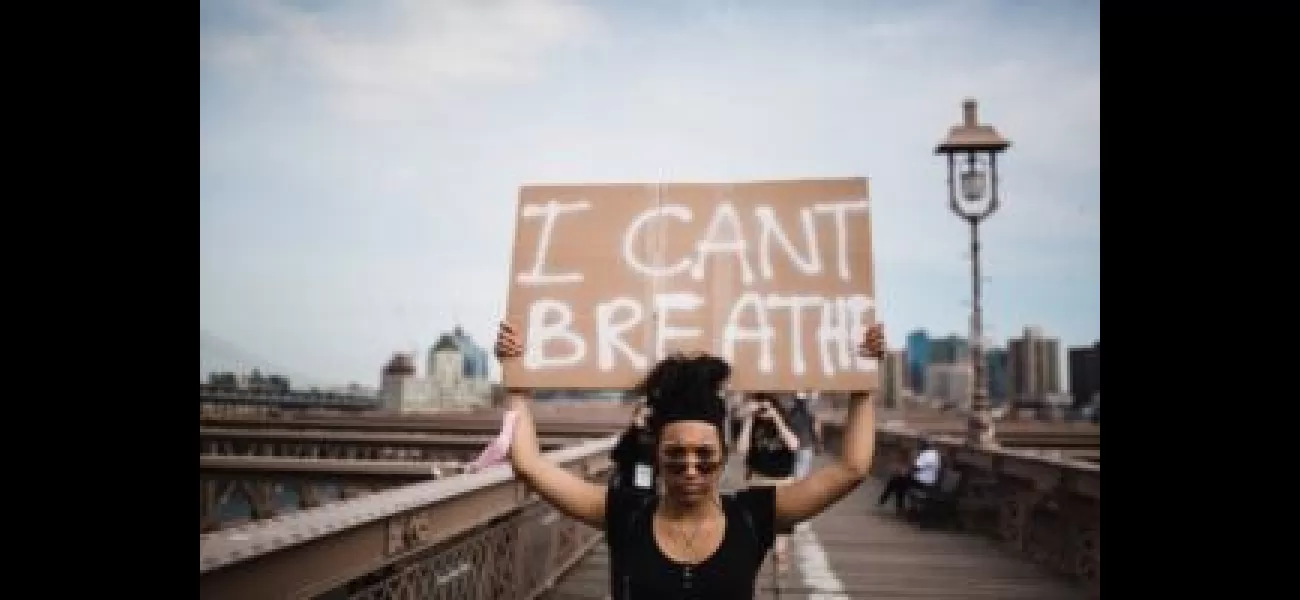Climate crisis disproportionately affects Black communities in Chicago, leading to greater health risks and financial hardship.
35 yrs in Chicago & Payne's old neighborhood gone; life has changed.
November 26th 2023.

Deborah Payne is a 35 year resident of Chicago, and recently sat down with In These Times to discuss the effects of climate change and pollution on Black neighborhoods. She recalled her South Side neighborhood that was completely destroyed by the climate crisis.
"Where homes used to be, there are now lots of debris and concrete," said Payne. "The air smells like 'rotten eggs baking in the summer sun' from the toxic metals that cake soil and pack into families' walls."
The impact of air pollution is particularly prominent in the Midwest, where only 10% of residents are Black, but Black people make up 30% of the region's "disadvantaged" by climate change and environmental injustice. According to the White House's climate and economic justice data tool, African-Americans in the Midwest are 33% more likely to be diagnosed with lung cancer than those outside the region.
The already-daunting issues of health and house accessibility are further compounded by a lack of job opportunities. This has caused the gap in housing ownership between white and Black households to expand drastically. As a result, many African-American Midwesterners have been forced to leave their neighborhoods in search of non-toxic air and more affordable living arrangements.
Asiaha Butler, a housing activist in Payne's old community, said, "When we leave, not only to the suburbs but to Texas, to Atlanta – I know because my family did it – it is because we see that Chicago and these other cities are not here to uphold Black life."
The problem was exacerbated by the expansion of railroads and factories that bought out acres of land, displacing over 200 families in Payne's neighborhood. Residents attempted to fight back, but to no avail. Now, Payne's neighborhood is among the most polluted areas in the country in terms of nitrogen dioxide byproducts.
"That's my story," said Payne. "It happened to me, happened to my neighborhood, but it's happening all over."
"Where homes used to be, there are now lots of debris and concrete," said Payne. "The air smells like 'rotten eggs baking in the summer sun' from the toxic metals that cake soil and pack into families' walls."
The impact of air pollution is particularly prominent in the Midwest, where only 10% of residents are Black, but Black people make up 30% of the region's "disadvantaged" by climate change and environmental injustice. According to the White House's climate and economic justice data tool, African-Americans in the Midwest are 33% more likely to be diagnosed with lung cancer than those outside the region.
The already-daunting issues of health and house accessibility are further compounded by a lack of job opportunities. This has caused the gap in housing ownership between white and Black households to expand drastically. As a result, many African-American Midwesterners have been forced to leave their neighborhoods in search of non-toxic air and more affordable living arrangements.
Asiaha Butler, a housing activist in Payne's old community, said, "When we leave, not only to the suburbs but to Texas, to Atlanta – I know because my family did it – it is because we see that Chicago and these other cities are not here to uphold Black life."
The problem was exacerbated by the expansion of railroads and factories that bought out acres of land, displacing over 200 families in Payne's neighborhood. Residents attempted to fight back, but to no avail. Now, Payne's neighborhood is among the most polluted areas in the country in terms of nitrogen dioxide byproducts.
"That's my story," said Payne. "It happened to me, happened to my neighborhood, but it's happening all over."
[This article has been trending online recently and has been generated with AI. Your feed is customized.]
[Generative AI is experimental.]
0
0
Submit Comment





